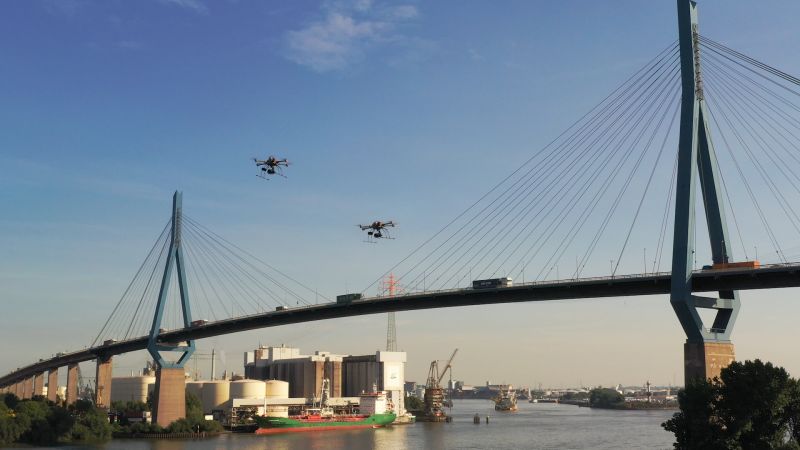Germany’s Federal Ministry of Digital Affairs and Transport (BMDV) has approved EUR870,000 funding for the Lösungen und Handlungsempfehlungen für die nationale Umsetzung der U-Space-Verordnung (LUV) project to support national implementation of U-Space infrastructure. The project consortium includes representatives from public authorities, research and industry in a 15-month programme in anticipation of the introduction of European U-space law in January 2023.
The project aims to develop the following:
- Legal requirements (e.g. air traffic regulations or legal prerequisites for flight
requirements for flight permits),
- technical solutions (e.g. for the real-time transmission of identification and movement data between the objects) as well as on organisational requirements (e.g. the short-term and, if necessary, automated checking and issuing of official flight permits).
The scientific basis is provided by simulated traffic scenarios and economic analyses, which are based on a U-Space operating concept and associated process models developed in the project.
A further objective of the LUV project is to develop procedures with which local authorities and agencies can participate in the designation of U-Spaces. Appropriate participation formats will be developed in a U-Space planning workshop.
According to Droniq, in order to achieve the project objectives, a U-Space operational concept will first be developed, which envisages that the U-Space airspace will be operated by one Common Information Service Provider (CISP) and two U-Space Service Providers (USSP).
The CISP provides the USSP with all relevant airspace and air traffic data for the provision of U-Space services. The USSP in turn provides the services defined for a U-Space (U-Space Services).
Based on this, process models for the technical and operational implementation of U-Space airspaces are elaborated in order to develop suitable pricing concepts for CISP and USSP. This will be followed by a validation of the results with the help of simulation studies. Together with an elaboration on the promotion of acceptance, the results will be used to develop recommendations for action.
Federal Minister for Digital Affairs and Transport Dr. Volker Wissing said: “Drones are fast and intelligent and intelligent helpers – be it for medical transports, in logistics, for rescue missions or for the inspection of railway lines, bridges or power lines. To make it even easier to use drones safely in Germany, we want to we want to make it possible to set up U-space areas from next year. We are currently working out the prerequisites for this with a group of experts. The Hamburg U-Space Space Laboratory, which we funded, has already answered important questions. The new LUV research project is a seamless continuation of this and will provide us with further concrete findings and recommendations. We will use these to establish safety in German airspace and enable more innovation and progress in unmanned aviation.”
Consortium partners include: Helmut Schmidt University/University of the Federal Armed Forces Hamburg (HSU) – lead partner; Technical University of Hamburg (TUHH) and the HafenCity University Hamburg (HCU). Corporate partners include: Droniq GmbH, DFS Deutsche Flugsicherung GmbH and Hamburg-based HHLA Sky GmbH; and the Hamburg Authority for Economics and Innovation (BWI).
For more information contact:




